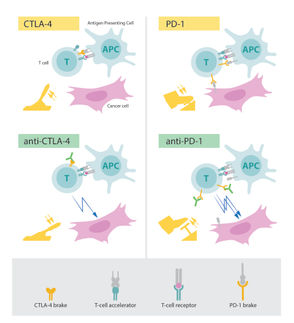Roche submits oral flu drug Tamiflu for regulatory approval in Europe
Roche and Gilead Sciences, Inc. announced today that Roche has submitted Tamiflu (oseltamivir phosphate), the first oral neuraminidase inhibitor, to the European authorities (CPMP) for regulatory approval for the treatment of influenza A and B in adults and children and the prevention of influenza A and B in adolescents and adults. Roche anticipates that Tamiflu will play an important role in the management of influenza in Europe.
The application in Europe is supported by clinical trial data demonstrating that Tamiflu provides rapid recovery from influenza and prevention of complications by safely and effectively targeting the root cause of the illness at all sites of infection.
Treatment studies in adults with Tamiflu have shown a significant reduction in both the duration and severity of symptoms, including fever and cough, allowing people to return to their normal lives more quickly. In children Tamiflu, taken orally as a convenient liquid form, also reduced the duration of influenza and severity of symptoms and reduced the development of otitis media. Tamiflu has been shown to be effective in a variety of settings for the prevention of influenza, providing immediate protection in an influenza outbreak.
In Europe, influenza can affect around one in ten of the adult population in a normal year, and this number can increase significantly during severe epidemics. Influenza is a common respiratory infection in children with around one in three children affected each year. Influenza related secondary complications are associated with excess use of antibiotics, hospitalisations and out-patient visits. In the UK last year around 20,000 people died as a result of influenza and its complications.
Tamiflu is already available for the treatment of influenza in a number of countries world-wide including the United States, Canada, Japan, Switzerland and many Latin American countries. Over one million patients have been treated with Tamiflu since launch. It is also approved in the US for the prevention of influenza in adolescents and adults and for the treatment of influenza in children aged 1 year and above.
Tamiflu, co-developed with Gilead Sciences, Inc. (NASDAQ: GILD) is a systemic treatment for all clinically relevant strains of influenza. Tamiflu attacks the influenza virus and stops flu from stopping you. The medication targets one of two major surface structures on the influenza virus, the neuraminidase protein. The neuraminidase protein is virtually the same in all common strains of influenza. If neuraminidase is inhibited, the virus is not able to infect new cells.
Most read news
Topics
Organizations
Other news from the department research and development

Get the chemical industry in your inbox
By submitting this form you agree that LUMITOS AG will send you the newsletter(s) selected above by email. Your data will not be passed on to third parties. Your data will be stored and processed in accordance with our data protection regulations. LUMITOS may contact you by email for the purpose of advertising or market and opinion surveys. You can revoke your consent at any time without giving reasons to LUMITOS AG, Ernst-Augustin-Str. 2, 12489 Berlin, Germany or by e-mail at revoke@lumitos.com with effect for the future. In addition, each email contains a link to unsubscribe from the corresponding newsletter.



























































